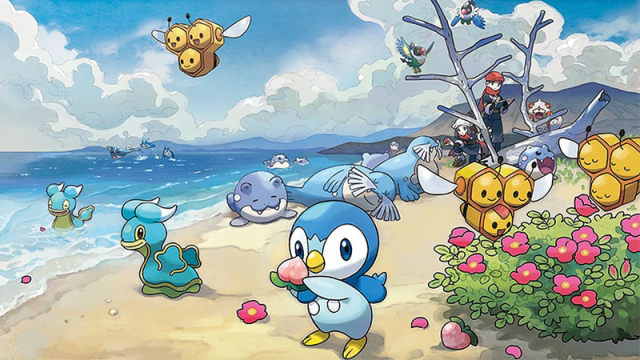For nearly 26 years, Pokémon games have been predicated on a singular, combative formula: catch Pokémon, train them, fight them, collect badges, be the very best Pokémon trainer there ever was. You can do all that in Pokémon Legends Arceus, but it’s not really the focus. Instead, it asks you to reconsider how you actually interact with generations of the loveable (and occasionally very dangerous) pocket monsters.
Legends Arceus, the latest game in the franchise, fundamentally re-invents how a “mainline” Pokémon game works. It’s set in the ancient past of the Sinnoh region — the land visited in Pokémon Diamond and Pearl, and named “Hisui” here — when it was first being colonised by human civilisation. After a roundabout introduction that posits you as, well, an agent of the titular Pokémon god Arceus, your primary task in Legends is not to be the ultimate trainer, or climb to the top of a ladder of gym leaders or an elite four of the Hisui region. Instead, you are given Hisui’s progenitor of the Pokédex (the technological device that collates scientific data on every Pokémon in the land, here essentially a notepad) and asked to venture into the wild and see what the hell is out there.
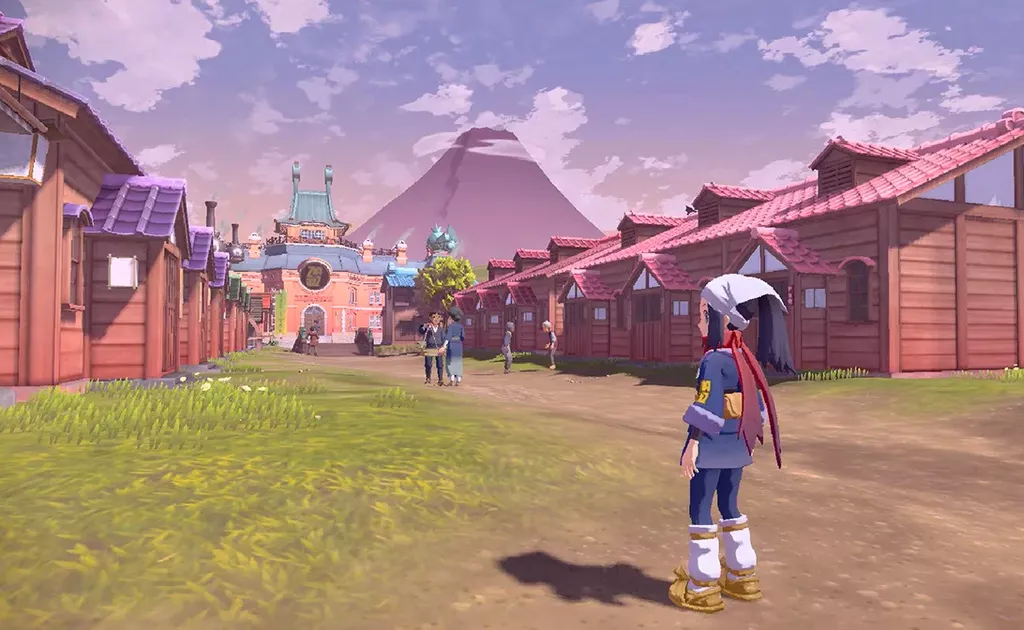
Setting itself in the past radically alters Legends Arceus’ wider view of the bond between Pokémon and humankind. Practically every other mainline Pokémon game, set in contemporary society, imagines a world where this relationship has already been forged: humans and Pokémon live in harmony, embracing the creatures as pets, cultural allies, work colleagues, and a fundamental facet of society. Their worlds are defined by cities and routes, and while there is a wilderness out there — the tall grass where you’ll actually go and capture Pokémon — it’s distinctly structured and partitioned off from humanity’s dominant stamp on the region. In Hisui, however, there’s a singular, small village of people. The rest of the world is just out there beyond its borders, and it is definitively the world owned by Pokémon.
What that means is that stepping out into Hisui’s wilds no longer makes you a sort of combative interloper, set to find Pokémon, capture them, and fight with them (although you can, of course, still do that). You’re really there to observe. Legends Arceus puts emphasis on that while you can still advance through its loose goals in the traditional Pokémon manner, you’ll fill out your Pokédex quicker and easier by witnessing these creatures in their natural habitats. For some metrics required to fill out a Pokémon’s particular dex entry, you’ll feed them to discover likes and dislikes, or find and capture particular members of that species that are larger or heavier. Some metrics are still driven by traditional Pokémon combat, but they evolve this even further by asking you to witness them using certain kinds of attack moves in combat.
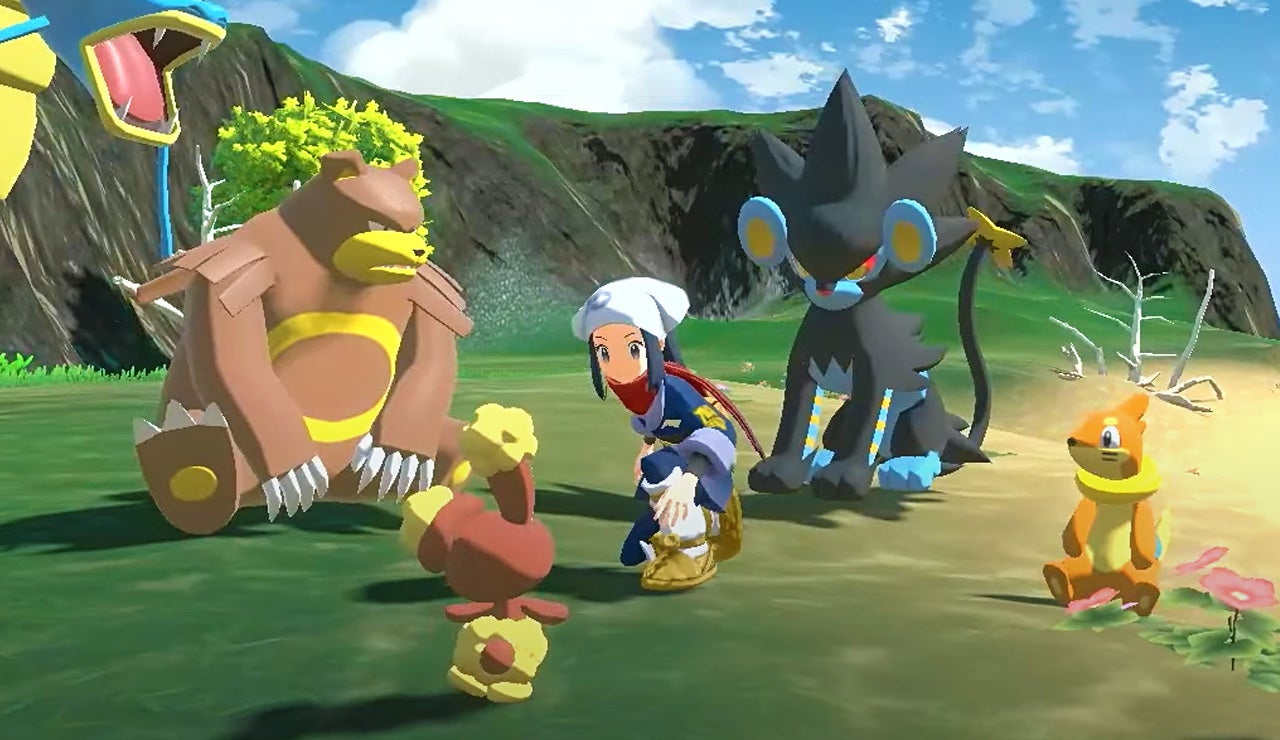
The world itself is built to make this observational role something to relish. All of Legends Arceus’ myriad biomes might feel a little too empty at times, so wholly and devoid of human civilisation, and that’s at least in part the intent. The life that inhabits Hisui is Pokémon life, no longer confined to just appear unseen lurking in the tall grass waiting to pounce on you in a fight, but just out here sleeping, eating, playing, simply existing in the wilderness.
The creatures — largely freed from the need to be seen in a combative environment — have never been so animated and lovingly rendered in the series than they have here, so discovering a new Pokémon you haven’t seen before is a complete delight. From flocks of adorable little Starly hopping through the grass, to the booming footsteps of giant, hostile “Alpha” versions of Pokémon that are better avoided instead of challenged in the territory they’ve staked as their own, the Pokémon of Legends Arceus are bursting with an adorable sense of personality that goes beyond an idle combat pose or a set of attack moves.
This time it’s you as the player lurking hidden in the grass, and not just because for the first time the threat of a Pokémon actually kicking your human arse is really a consideration. Instead, you’re watching these Pokémon hop and run about as you flip through your Pokédex, looking to see what is the next thing you want to learn about these creatures. It all pushes you to move away from thinking about Pokémon simply as deciding a team, capturing that team, and then fighting through the Pokéranks, to a more holistic view of them as individual creatures.
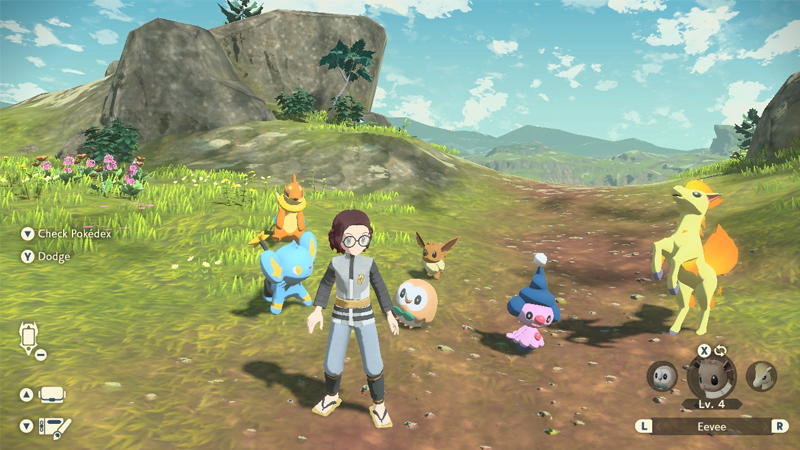
For the most part, I’ve spent the past 26 years of my Pokémon-playing life in a familiar pattern: deciding the team of six Pokémon I want in advance, capturing those Pokémon, grinding out levels and progressing through a familiar journey of getting every Gym badge, stopping the villain team of the game, and then challenging the Elite Four to become a Pokémon master. It’s not like I didn’t care about Pokémon — I have my favourites, as do we all — but I didn’t really appreciate the Pokémon that I hadn’t selected for my main team in those games. They were the fodder for my chosen Pokécompatriots to grow off of, to level up and get stronger. In Legends Arceus, that’s changed completely, mostly because the idea of having a specific set team as I navigate this world no longer feels like it makes sense, especially as I’m fighting Pokémon far less than I am trying to capture them outside of combat, luring them with berries and other foods, or see what kinds of moves they use, checking off entries in the Hisuian Pokédex with reckless yet satisfying abandon.
There’s a quiet joy in slowly walking through this world as one of a handful of humans there, a stranger in a strange land, and just seeing Pokémon live their lives — and that you are largely there to document those lives, instead of simply beating them into submission. Although the game itself skirts around the issue of humans as encroaching settlers, I still found myself impacted by how Legends Arceus tweaks your perspective on Pokémon. Even as I took joy in cataloguing Eevees and Buizels to my heart’s content, I found myself questioning the inevitable sadness that one day Hisui would become Sinnoh, a fully colonised human world, instead of the Pokémon world as in Legends Arceus. There’s such joy in watching these Pokémon live out their lives, seeing them exist in an environment that is wholly theirs. Do we really need to go back to the old ways where they’re loveable tools instead of a living society?
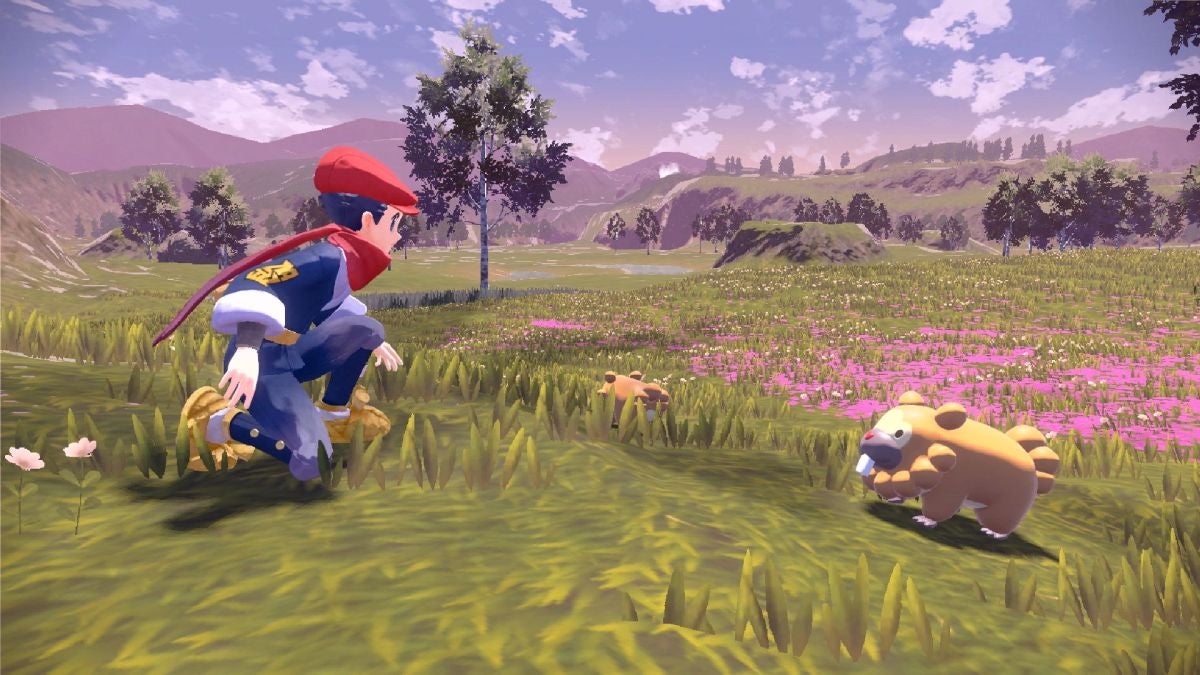
Maybe it doesn’t have to be the case. Legends Arceus has been a massive success so far, so it stands to reason that the elements that made it so well received might make their way into the “traditional” primary Pokémon games. In the future, we might be able to find joy in evolving our relationship with the titular pocket monsters beyond the one we’ve forged for two and a half decades, making it more symbiotic than combative.
Wondering where our RSS feed went? You can pick the new up one here.
